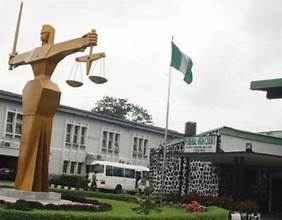Abdul-Jhalil Tafawa Balewa, a former presidential hopeful from the Peoples Democratic Party (PDP), has expressed skepticism regarding the effectiveness of adopting a parliamentary system of government to address Nigeria’s pressing socio-political and economic issues.
In an interview with the News Agency of Nigeria in Lagos, Tafawa Balewa responded to the growing calls for a transition from the current presidential system to a parliamentary framework, arguing against such a shift as a viable solution to the nation’s difficulties.
Historically, Nigeria operated under a parliamentary system, inspired by the British Westminster model, from 1960 until a military coup in 1966, during which Sir Abubakar Tafawa Balewa served as Prime Minister and Dr. Nnamdi Azikwe held the ceremonial position of head of state.

Tafawa Balewa stated, “I do not believe that adopting a parliamentary system is the solution we need. However, I believe that our democracy should be adapted to better reflect the needs of our society.”
He cautioned that implementing a completely new system could be prohibitively expensive and impractical at this juncture. Instead, he advocates for a restructuring of the nation that would facilitate the decentralization of power from the central government to various regions.
The former presidential aspirant emphasized that such a restructuring would enable different zones to leverage their unique strengths for development, potentially alleviating many of the country’s current problems.
He elaborated on how different regions could focus on their respective areas of expertise: the South-West could prioritize the service industry, the South-East could develop its marine, manufacturing, and commerce sectors, while the South-South would continue to focus on petroleum and its derivatives. In contrast, the North could harness its agricultural potential.




